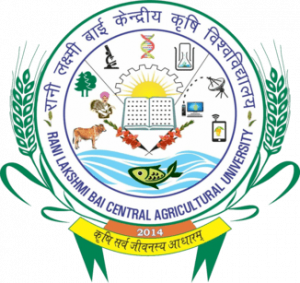Argonomy

Agronomy is a branch of agricultural science that focuses on the study and management of crops and soils. It involves the application of scientific principles to the cultivation of crops, aiming to optimize their growth and yield while ensuring sustainable agricultural practices. Agronomists study various factors that affect crop production, including soil fertility, water management, crop rotation, and pest control. By understanding the interactions between plants, soils, and the environment, agronomy seeks to develop and promote techniques that enhance productivity, minimize environmental impact, and ensure food security.
In addition to practical applications, agronomy also involves research into new crop varieties and farming technologies. This includes genetic improvement of crops to increase resistance to pests, diseases, and environmental stresses, as well as the development of innovative farming practices that improve efficiency and sustainability. Agronomists work closely with farmers, researchers, and policymakers to implement and refine these practices, bridging the gap between scientific research and practical agriculture. Their work is vital in addressing challenges such as climate change, resource management, and the need for increased food production, making agronomy a key discipline in the advancement of global agriculture.
Page recently updated on September 4th, 2024 at 12:26 am



 About RLBCAU Information About RLBCAU
About RLBCAU Information About RLBCAU History History of RLBCAU
History History of RLBCAU Vision & Mission
Vision & Mission Jhansi About the City of Jhansi
Jhansi About the City of Jhansi From VC’s Desk
From VC’s Desk  Objective Objective of RLBCAU
Objective Objective of RLBCAU How To Reach How To Reach RLBCAU
How To Reach How To Reach RLBCAU University Act RLBCAU University Act
University Act RLBCAU University Act Regulations Regulations in RLBCAU
Regulations Regulations in RLBCAU Practical Manual (UG) Practical Manual (UG)
Practical Manual (UG) Practical Manual (UG) List of Students List of Students in RLBCAU
List of Students List of Students in RLBCAU Board of Management
Board of Management  Admission ProcedureAdmission Procedure of RLBCAU
Admission ProcedureAdmission Procedure of RLBCAU Academic Programmes Academic Programmes in RLBCAU
Academic Programmes Academic Programmes in RLBCAU College of Agriculture About College of Agricultire in RLBCAU
College of Agriculture About College of Agricultire in RLBCAU College of Horticulture & Forestry About College of Horticulture and Forestry
College of Horticulture & Forestry About College of Horticulture and Forestry College of Fisheries About College of Fisheries in RLBCAU
College of Fisheries About College of Fisheries in RLBCAU Recent News Recent News from RLBCAU
Recent News Recent News from RLBCAU Notice & Circulars Notice & Circulars from RLBCAU
Notice & Circulars Notice & Circulars from RLBCAU Press & Media Press & Media from RLBCAU
Press & Media Press & Media from RLBCAU Tenders Tenders from RLBCAU
Tenders Tenders from RLBCAU Hostel Hostel in RLBCAU
Hostel Hostel in RLBCAU Guest House Guest House in RLBCAU
Guest House Guest House in RLBCAU Library Details of Library in RLBCAU
Library Details of Library in RLBCAU 2024 Photo Album View Photogallery for 2024
2024 Photo Album View Photogallery for 2024

